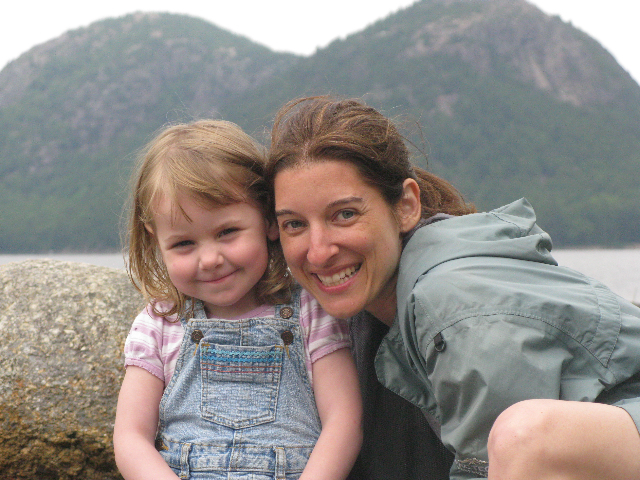Theme Essay by Robin L. Flanigan
Words and the Savage Search for Motherhood

I wrote it all down. The procedures, the pregnancies, the losses. It’s all on torn notebook sheets and the back of to-do lists, between receipts for fertility drugs and an article about the miraculous power of holy water from Lourdes. In a plastic folder I keep in my desk drawer, there are tens of thousands of words. Begging words. Optimistic words. Defeated words.
I’m a journalist, so I document things, even off the clock, wanting to create a record my memory will inadvertently alter or discard over time. I savor the mundane details—the brown boots I wore while doctors investigated my fallopian tubes, the smile I faked when a colleague shared she was nearly four months along—because they root me. To write that I questioned and overanalyzed would have been too vague. The details mattered. I wanted what I went through to matter, to somehow warrant that the way things happen is the way they’re supposed to happen.
Plain and simple, it was unfair that I had to work so hard to conceive while teenagers around me did it accidentally and newspapers ran stories about women abandoning newborns at hotels and rat-infested apartments. When I asked a nurse at the fertility clinic early on about our chance of success, her answer underscored the futility I feared: “It’s all hocus-pocus.”
I struggled violently with the Christian faith I’d been taught to hold onto. I scoured my surroundings for signs the universe was in my corner, then wrote them down. After finding out I was losing my second pregnancy, I ran a stop sign and nearly hit an elderly man in another car. He swerved and pounded his horn, and at the next red light, he yelled at me. After I yelled back, blurting my situation in hysterical bursts, he held up a cross on a chain and mouthed, “This is for you.”
I wrote about detecting an angel’s wing in a long white cloud, about how my mom compared the robin in her yard, which day after day wrenched dried grass from a weed patch before flying away, to me getting my own nest ready.
When it was hard to pray, I opened the Bible to a psalm at random and chronicled parts of verses that resonated most:
But I am afflicted and in pain....
You who seek God, let your heart revive.
For the Lord hears the needy....—Psalm 69: 29, 32-33
Writing helped me stay grounded. Words are easy to believe in. You put them down, and they stay put. Their validation is immediate. They have the power to create and the power to destroy, but you never have to doubt their motive if you’ve produced them honestly.
When my husband and I decided to adopt, the plastic folder swelled with more words. About the news that we’d be parents of a baby girl in three weeks. About meeting the birthparents, waiting for the delivery. Shortly before the due date, at a friend’s house, I created this poem from the magnetic poetry kit on her refrigerator:
she
tiny dream
pink crush
Then I put together this sentence:
I am
above
thinking
• • •
Now that our daughter is nearly nine, the documentation continues. I write essays exploring our relationship that I hope one day read to her like a chain of love letters.
In a 2012 interview, Maya Angelou said we write “because we have the impulse to explain who we are.” In those infertility years, I was a lost soul who cried through sermons and dreamed that fertility drugs made me sprout five nipples. I know this because of my meticulous note-taking, which not only justified the suffering then but has become saturated with new meaning.
When I’m able to look back and string all the pieces together, the narrative does make sense. My prayers were answered—not in the form in which I pitched them furiously to the heavens, but in the way they were destined to materialize.
I was supposed to be the mother of this particular precocious child, which is what I emphasized when she found me a few years ago on the floor of my office, in tears, reading from the pages in that plastic folder. “If I didn’t go through every single thing in here,” I told her, “I wouldn’t have you.”
My story has become her story. Our story.

Publishing Information
- Psalm 69: 29, 32-33, New American Standard Bible.
- "Why We Write," interview with Maya Angelou by Vikas Shah, Thought Economics, October 2012.
Art Information
- “Oihan Amatxorekin” © Mikel Garcia Idiakez; Creative Commons license.
- The Author and Her Daughter © Robin L. Flanigan; used by permission.
 Robin L. Flanigan worked in newsrooms, winning several national reporting awards, for eleven years. She now freelances for magazines and newspapers and has had essays published in various anthologies.
Robin L. Flanigan worked in newsrooms, winning several national reporting awards, for eleven years. She now freelances for magazines and newspapers and has had essays published in various anthologies.
Robin’s coffee-table book on the city of Rochester, New York, where she lives with her husband and daughter, was published in 2008. She dedicates early mornings these days to working on a narrative nonfiction manuscript and a mindfulness-themed picture book for children. You can see more of her work at Robin's website, The Kinetic Pen.
